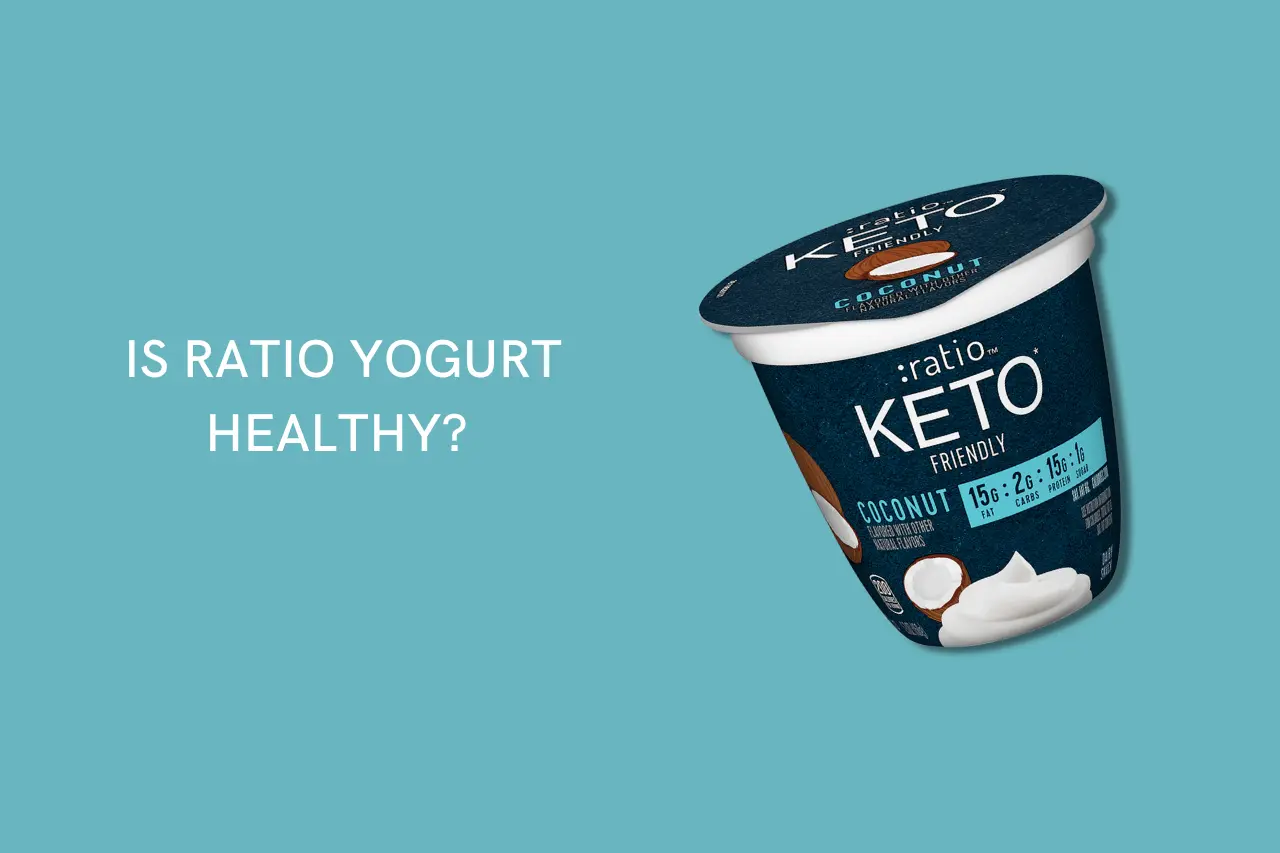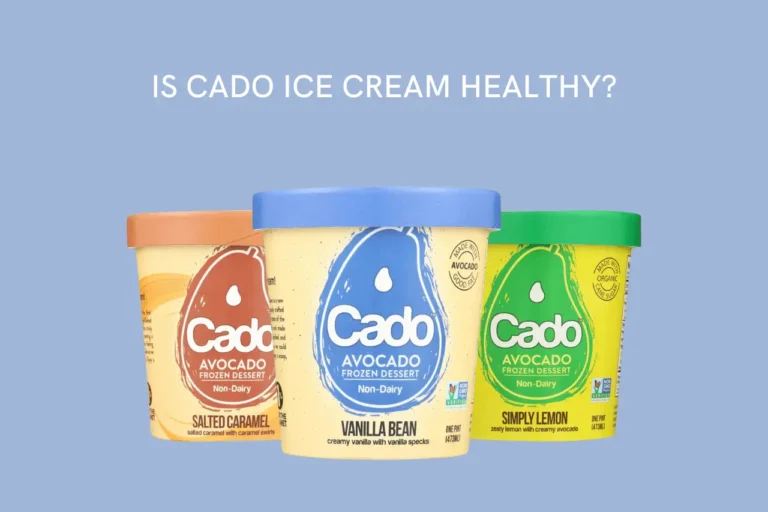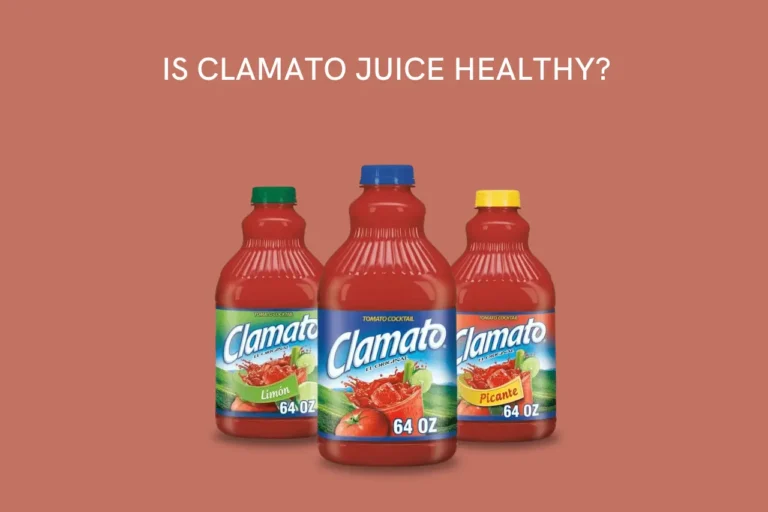If you are a yogurt lover, it’s quite likely you’ve spotted Ratio yogurt in stores recently.
The Ratio is a popular brand of yogurt launched by General Mills in 2020.
Ratio yogurt is marketed as keto and high protein and comes in various flavors such as blueberry, strawberry, mango, coconut, and more.
However, is Ratio yogurt healthy?
Short answer: Ratio yogurt can be considered healthy as it is low in sugar and sodium, high in protein, and does not contain artificial flavors, colors, or preservatives. However, it contains carrageenan and artificial sweeteners and must be consumed in moderation.
Read on to find out more about Ratio yogurt, including its ingredients, sugar, protein, sodium content, and more.
Read also: Is Yoplait Yogurt Healthy? Here Is The Answer
What are the ingredients in Ratio yogurt?
The Ratio yogurt comes mainly in two variants – Keto and Protein.
These variants further come in multiple flavors. Therefore, the exact ingredients can vary depending on the flavor.
In general, Ratio yogurt is made from Pasteurized Ultra-Filtered Nonfat Milk as the base ingredient.
Pasteurized Ultra-Filtered Nonfat Milk is a type of milk processed to remove all the lactose and fat. As a result, it has a higher protein concentration and is easy to digest.
Other ingredients that you would find across different flavors include:
- Pasteurized Milk
- Milk Fat
- High Oleic Sunflower and/or Avocado Oil
- Natural Flavor
- Sucralose
- Cultures (L. bulgaricus, S. thermophilus)
- Erythritol (only in protein variant)
- Carrageenan (only in protein variant)
The ingredients list of Ratio yogurt is short and simple.
There is no use of any major red flags such as artificial flavors, lab-concocted colors, or chemical preservatives.
For coloring the yogurt, real fruit and vegetable like black carrots and blueberries are used.
However, Ratio yogurt does contain artificial sweeteners such as sucralose and erythritol for sweetening the yogurt.
Moreover, the protein variant contain carrageenan, which has been linked with digestive issues and colon cancer[1].
As a result, ingredients-wise Ratio yogurt cannot be considered truly healthy.
How much sugar is in Ratio yogurt?
Ratio yogurt is extremely low in sugar containing 1 to 2g per serving, depending on the flavor.
If you go with the protein variant, it contains 3g of sugar, which is also low.
That’s good news for those limiting their sugar intake or watching their weight.
Instead of sugar, Ratio keto yogurt uses sucralose for sweetness. While the Ratio protein yogurt uses sucralose and erythritol.
Sucralose is a calorie-free artificial sweetener that is about 600 times sweeter than table sugar[2]. It is often used to substitute sugar in many foods.
Although the FDA has approved this sweetener as safe, certain studies linked it’s connection with an elevated risk of obesity, high blood sugar levels, metabolic syndrome, type 2 diabetes, and heart disease[3].
However, that’s only when you consume too much of it.
On the other hand, erythritol is a sugar alcohol that is low in calories and is 60 to 70% as sweet as table sugar.
It is also approved as safe, but excess consumption can result in digestive issues.
So while Ratio yogurt is low in sugar, it’s still important to consume it in moderation.
How much protein is in Ratio yogurt?
Ratio yogurt is a good source of protein.
The Keto variant contains 15 to 17g of protein, while the protein variant comes with 25g per serving.
Compared to other yogurt brands like So Delicious, Yoplait, and Chobani, Ratio emerges as the clear protein winner.
All the protein in the Keto variant comes from milk. However, the protein variant, in addition to milk, contains whey protein concentrate.
If you are looking to increase your daily protein intake, Ratio yogurt is indeed a good option.
How much sodium is in Ratio yogurt?
Ratio yogurt is low in sodium containing 40 to 150mg per serving, depending on the variant.
That’s 3 to 10% of the daily ideal sodium limit(1500mg) set by the American Heart Association.
Sodium is an essential part of the diet, but too much of it can result in heart-related issues.
The low sodium in Ratio yogurt might be a downside for those with no sodium related problems.
However, if you limit sodium in your diet due to high blood pressure or heart health issues, Ratio yogurt stands out as a really good option.
Does Ratio yogurt have probiotics?
Each serving of Ratio yogurt provides a probiotic boost from the two standard yogurt cultures – L. bulgaricus and S. thermophilus.
These live cultures provide many benefits for immunity, digestion, and gut health.
I noticed that only the keto version of Ratio yogurt lists these two cultures in the ingredients list, while the protein version does not.
However, the protein variant does contain cultured pasteurized milk. This means probiotic bacteria were used to ferment the milk into yogurt.
So even though the cultures aren’t listed, the Ratio protein yogurt still provides probiotics from the cultured milk.
Is Ratio yogurt keto-friendly?
The Ratio keto yogurt is keto as it contains just 2 to 3g of total carbs. It also meets the high-fat criteria of a keto diet with a substantial fat content of 15 to 17g per serving.
The protein variant of Ratio yogurt has slightly more carbs at 8g per serving. While not labeled as keto, this carb count still remains low.
However, the protein variant is low in fat, with only 4g per serving.
Is Ratio yogurt good for weight loss?
Ratio yogurt is good for weight loss as it is low in sugar.
It is also low in calories containing anywhere from 170 to 200 per serving.
Moreover, it is high in protein and a good source of probiotics, which improve metabolism and promote weight loss.
Note that weight loss depends not only on one food but overall diet and lifestyle.
Is Ratio yogurt gluten-free?
Ration yogurt is gluten-free as it does not contain any gluten-based ingredients.
However, it is not suitable for vegans.
Final words
After looking at the ingredients and nutritional value, it can be considered that Ratio yogurt is healthy.
There are various reasons for this, such as:
- It is low in sugar.
- It is an excellent source of protein.
- It is low in sodium.
- It is keto-friendly and gluten-free.
- It is free from artificial flavors, colors or preservatives.
However, there are also a couple of downsides to Ratio yogurt, such as:
- It uses artificial sweeteners.
- It contains carrageenan.
Therefore, it’s crucial that you consume Ratio yogurt in moderation.
Found this information helpful? Share it.
Here are a few other posts that might also be helpful for you.





